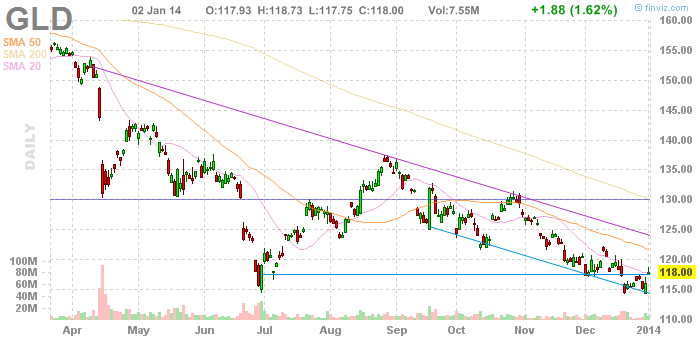This time, last year, almost all believed the metal would rise through the year. Analysts issued an average price forecast of $1,753 per troy ounce. Instead, gold averaged $1,411, suffering its first down year in 13 and worst year since 1981. By New Year’s eve the price was $1,202.
Gold ETF (USD):

Gold ETF (INR):
Investment demand for physical gold fell 25% last year. ETFs that keep gold in vaults on behalf of investors have dumped nearly 30m ounces from a high of 84.6m ounces at the end of 2012.
Currie, Goldman Sachs’s head of commodities research, had a target of $1,050 an ounce back in early October. The biggest gold bulls have abandoned ship. Paulson told clients at his firm’s annual meeting Nov. 20 that he personally wouldn’t invest more money in his gold fund. Billionaires George Soros and Daniel Loeb sold their entire positions in the SPDR Gold Trust exchange-traded fund in the second quarter.
Given so much hatred about gold, should the contrarian investor jump in? No. The odds of runaway inflation is low, equity market returns are likely to be more attractive compared to gold’s in the near term and investors are still in the process of pulling money out of gold funds. There will come a time to challenge the bearish thesis on gold, but investors going long right now could end up being too early.
[stockquote]GOLDBEES[/stockquote]
Source:
Gold bulls lose faith in bullion’s allure
Goldman’s Currie Says Gold Is ‘Slam Dunk’ Sell
Paulson Said to Inform Clients He Won’t Add More to Gold
Related articles




















